Miso is the flavorful fermented ingredient you didn’t know you needed. But what is miso paste? And is it actually good for you?
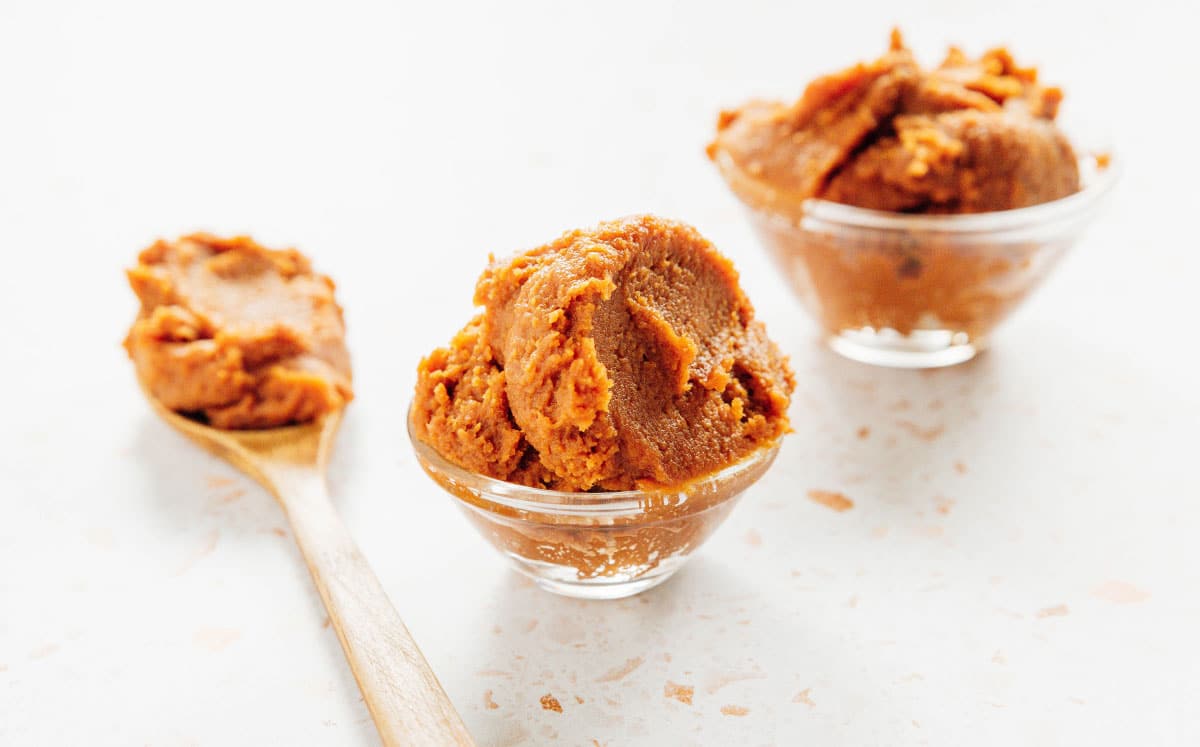
What is miso paste made of?
Miso paste is a traditional Japanese seasoning made from soybeans, rice, barley, or a combination of these grains. The ingredients are fermented together with a type of mold called koji, and then mixed with salt to form a thick paste.
Miso paste has been used for centuries in Japan as a way to add flavor and nutrition to soups, sauces, marinades, and even as a spread on sandwiches. The fermentation process gives miso paste its unique savory flavor, known as umami, which is often described as “meaty” or “savory.”
Types Of Miso
The color of miso paste can vary depending on the type of grain used and the length of fermentation. Some common types of miso paste include:
- White miso, also known as shiro miso, is the lightest in color and has the mildest flavor. It is made from soybeans and rice, and is typically fermented for a shorter period of time.
- Yellow miso, also known as shinsu miso, is made from soybeans and barley, and has a slightly stronger flavor than white miso. It is typically fermented for a medium length of time.
- Red miso, also known as aka miso, is the darkest in color and has the strongest flavor. It is made from soybeans and barley or soybeans and rice, and is typically fermented for the longest period of time.
Miso paste can be found at most supermarkets and specialty food stores.
Miso can be stored in the refrigerator for up to a year.
How To Use Miso Pasta
When using miso paste, it is important to remember that a little goes a long way, as the flavor is quite strong!
Miso paste is a versatile ingredient that can be used in a wide variety of dishes. It can be used to make miso soup, marinades, dressings, and sauces (like miso mayo!). Some popular Japanese dishes that use miso paste include miso-roasted eggplant and miso-glazed mushrooms!
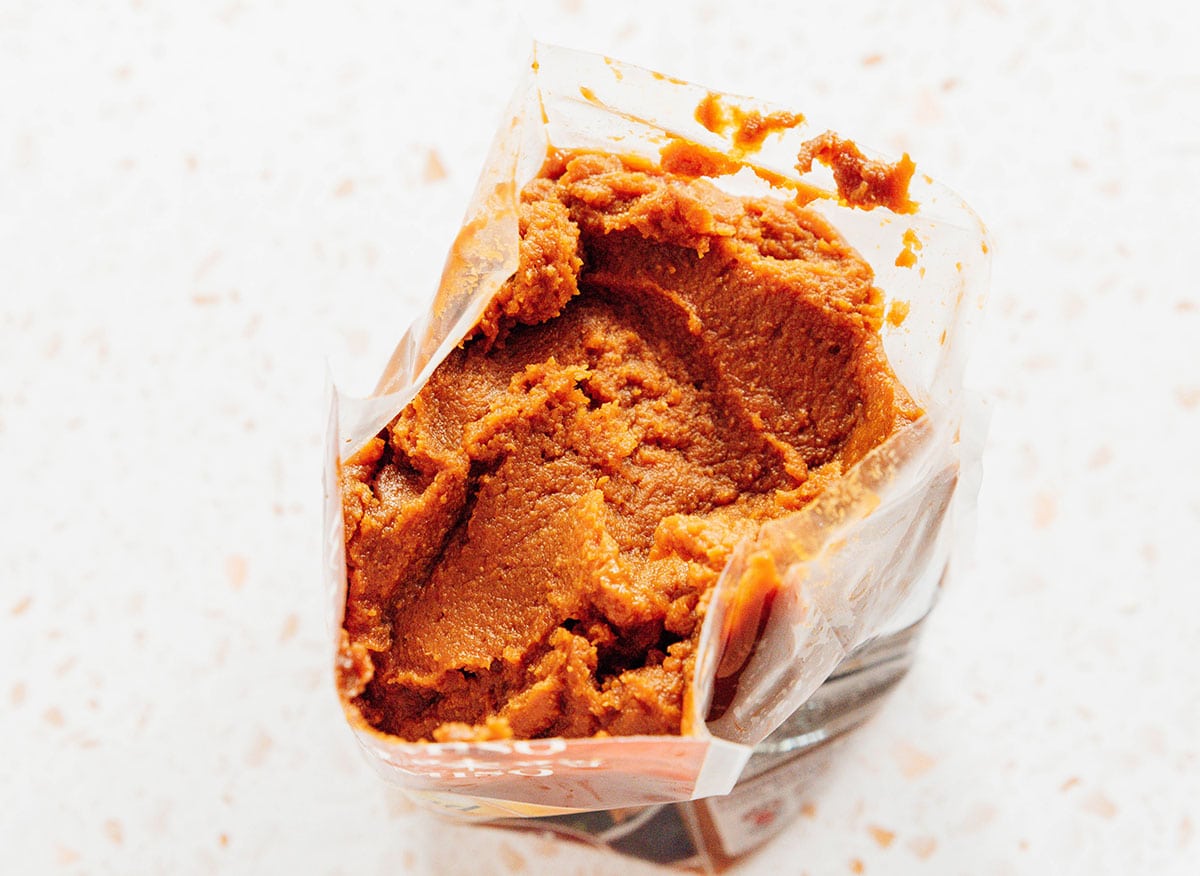
Miso Paste Health Benefits
Miso paste is a healthy ingredient, being a good source of protein, fiber, and vitamins and minerals. Miso paste has several health benefits due to its fermentation process and the ingredients used. Here are a few examples:
Rich in Nutrients: Miso paste is a good source of protein, fiber, and vitamins and minerals such as B vitamins, zinc, and copper. It is also a good source of antioxidants, which can help protect the body against damage from harmful molecules.
Promotes Digestive Health: The fermentation process used to make miso paste helps to promote the growth of beneficial bacteria in the gut, which can improve digestion and boost the immune system.
Miso paste is relatively high in sodium, so it should be consumed in moderation if you are watching your salt intake.
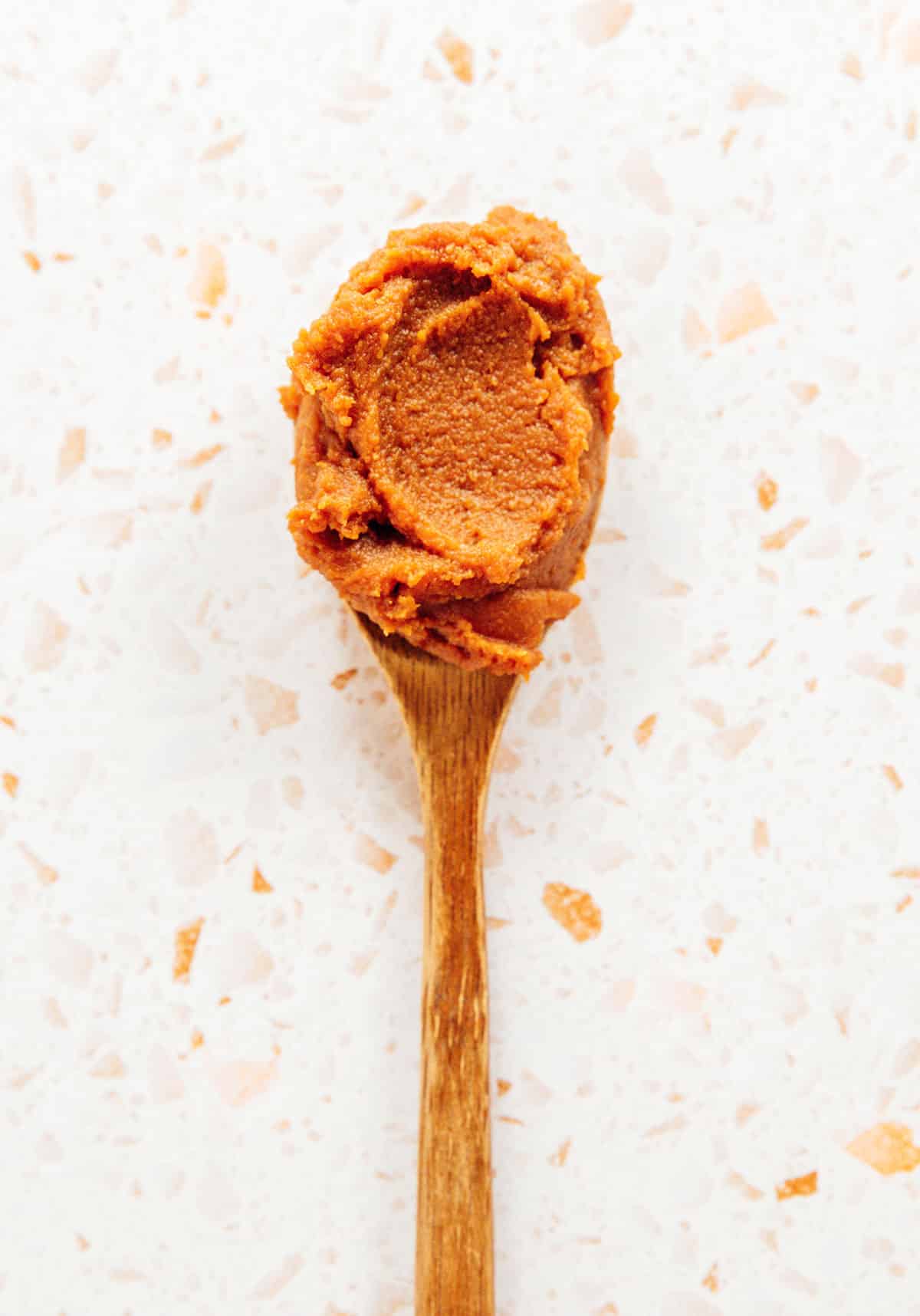
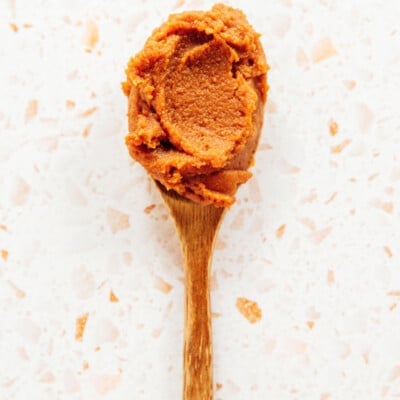


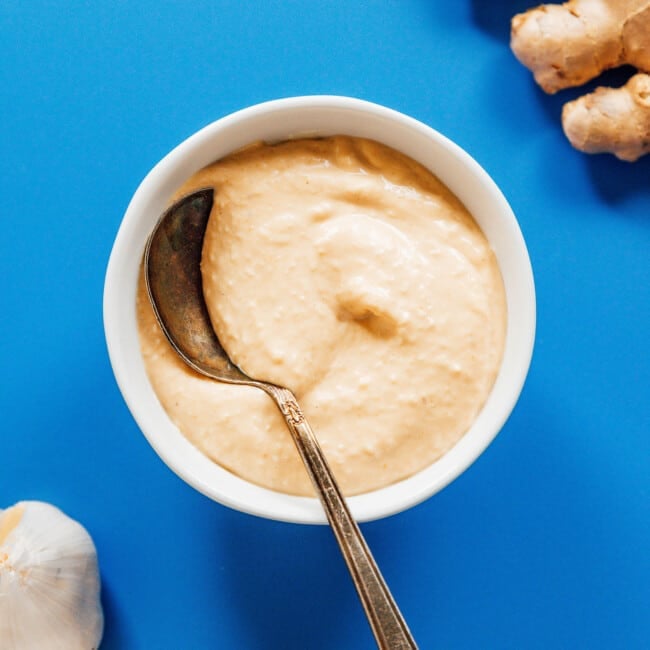

Leave a Comment